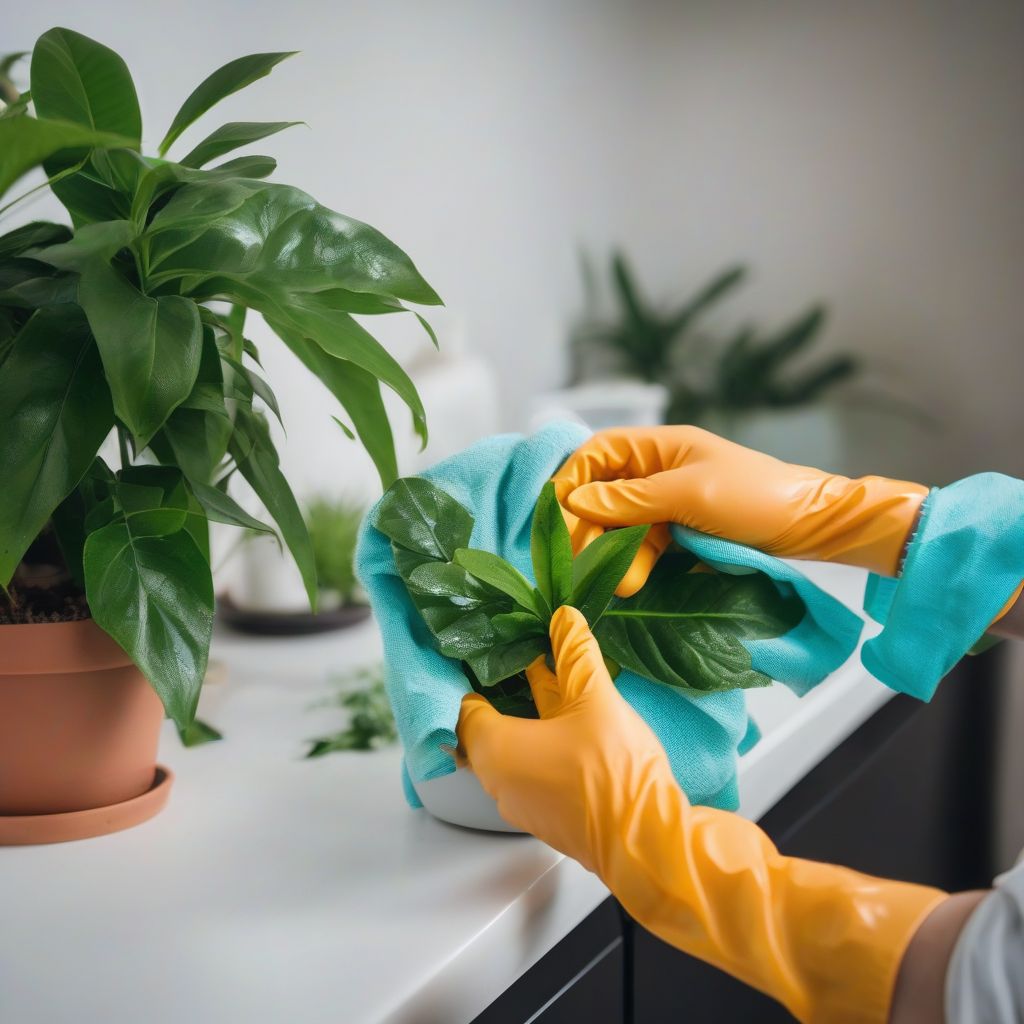Have you ever nurtured a tiny seedling into a thriving houseplant, only to watch it wilt and weaken due to disease? It’s a heartbreaking experience for any plant parent. Just like us, plants are susceptible to illnesses, but the good news is that with a little knowledge and proactive care, you can prevent and manage most indoor plant diseases.
This guide will equip you with the tools and know-how to become a confident plant protector. Let’s dive in!
Understanding Indoor Plant Diseases: Know Your Enemy
Before we can combat plant diseases, it’s crucial to understand what we’re dealing with. Most indoor plant diseases are caused by:
1. Fungi: These are the most common culprits, thriving in damp environments and often manifesting as leaf spots, powdery mildew, or root rot.
2. Bacteria: These microorganisms can cause leaf spots, wilting, and soft rots. They can spread through water, soil, or infected tools.
3. Viruses: Although less common, viruses can stunt growth and cause distorted leaves. They’re often spread by insects.
Prevention is Key: Creating a Healthy Environment for Your Plants
The best way to manage plant diseases is to prevent them altogether! Here’s how:
1. Choose Healthy Plants: Inspect new plants carefully for any signs of disease before bringing them home.
2. Provide Optimal Growing Conditions:
- Light: Ensure your plants receive the right amount of light for their species. Inadequate light weakens plants, making them more susceptible to diseases.
- Water: Overwatering is a leading cause of root rot. Water thoroughly when the soil is dry to the touch, and ensure proper drainage.
- Humidity: Some plants thrive in humid environments. Use a humidifier or pebble tray to increase humidity if needed.
- Air Circulation: Good air circulation helps prevent fungal diseases. Avoid overcrowding your plants and provide adequate spacing.
3. Practice Good Hygiene:
- Cleanliness is Key: Disinfect your pots, tools, and work surfaces regularly to prevent the spread of diseases.
- Remove Debris: Regularly remove fallen leaves and debris from pots and trays, as these can harbor pests and diseases.
4. Give Your Plants a Boost:
- Proper Nutrition: Feed your plants with a balanced fertilizer during the growing season to ensure they’re strong and healthy.
- Natural Defenses: Neem oil and insecticidal soap are excellent natural options to prevent pests and diseases.
 Preventing Indoor Plant Diseases
Preventing Indoor Plant Diseases
Identifying and Managing Common Indoor Plant Diseases
Even with the best care, diseases can sometimes occur. Here’s a look at some common indoor plant diseases and how to manage them:
1. Powdery Mildew: This fungal disease appears as a white, powdery coating on leaves.
- Management: Isolate the infected plant, remove affected leaves, and apply a fungicide. Improve air circulation and avoid overhead watering.
2. Root Rot: This often fatal condition is caused by overwatering and poor drainage, leading to the decay of roots.
- Management: Repot the plant in fresh, well-draining soil, and trim away any mushy, discolored roots. Water only when the soil is dry.
3. Leaf Spot Diseases: These can be caused by both fungi and bacteria, appearing as spots on leaves.
- Management: Remove affected leaves, avoid overhead watering, and improve air circulation. Apply a fungicide or bactericide if necessary.
Expert Tips for Healthy Indoor Plants
-
“Prevention is always better than cure when it comes to plant health. Invest in good quality potting mix, provide adequate light and water, and inspect your plants regularly.” – Jane Smith, Horticulturist and Author of “The Happy Houseplant.”
-
Did you know that cinnamon can be a natural fungicide? Sprinkle a bit on the soil around your plants to help prevent fungal diseases.
No products found.
A Little Care Goes a Long Way
Keeping your indoor plants healthy and thriving doesn’t have to be complicated. By following these practical tips for prevention and management, you can create a thriving indoor oasis. Remember, a little observation and proactive care can go a long way in ensuring your plants live their best life.
